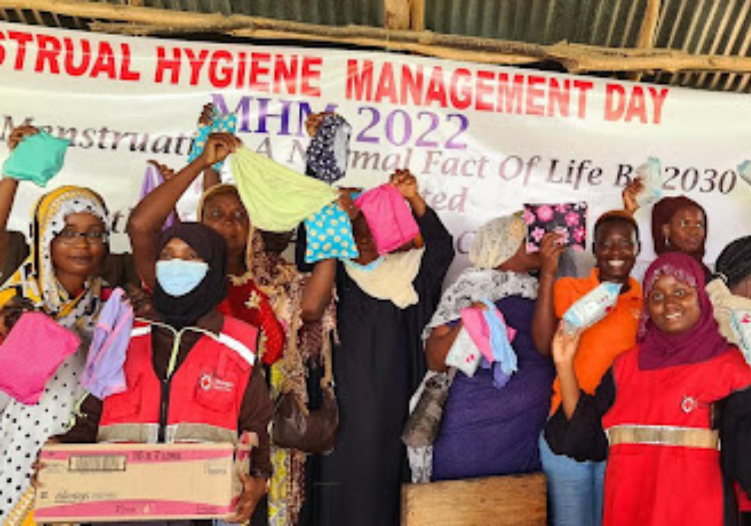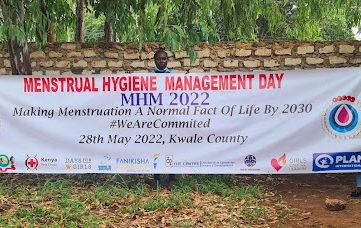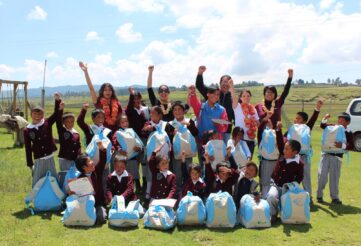Working Together We Accomplish More

Before COVID-19, menstrual health programs in Kenya were largely siloed, with many organizations working individually or in small cohorts. Now, coming out of COVID, we are more adept at cultivating partnerships and working together to bring menstrual health solutions to communities.
This year’s Menstrual Health (MH) Day celebration in Kwale County, Kenya spotlighted the power of these partnerships as 11 different organizations came together and pooled their resources to provide people with MH education and menstrual products.
The Need
Difficulties related to a lack of accurate and timely information on MH leads to girls’ misunderstanding menstruation and how it relates to sexual and reproductive health. The county’s public health department acknowledged this lack of understanding and lack of access to menstrual products as contributing factors to the high prevalence of teenage pregnancy (12,000+ recorded teenage pregnancies over the last two years), teenage sexually transmitted infections, and teenage HIV infections across the county.
One young mother participating in the MH Day activities in Kwale county spoke up about her personal experience with this, commenting:
As a result of need, I decided to engage in transactional sex to free my parents the burden of having to choose between buying food and buying me pads. With my naivety, I wasn’t aware of the relationship between menstruation and pregnancy. It is only when my tummy started growing and I started facing the wrath of my parents that I knew I was pregnant and my life would take a different course.
Partners Provide MH Education and Promote Product Choice
To address the problem of inadequate MH education, partners decided to pool resources to ensure that this year’s celebration focused on MH education and access to menstrual products. By providing accurate information about menstruation, the goal was to empower the entire community to become a supportive environment where women and girls could manage their menstruation with dignity, safety and confidence. Each organization taught parts of their menstrual health education to the 1,405 women, girls, men and boys who were in attendance at the event.

In addition to teaching MH education, partners also taught the benefits of various menstrual products, reinforcing the fact that each menstruator has the right to choose which product(s) are best for them; a disposable pad, washable pad and menstrual cup were distributed to the women and girls at the event. Meanwhile, recognizing that men play an essential role in creating supportive menstrual environments, the men and boys present were also given the period supplies along with instructions to give the products to the females in their households.
With different types of period products being delivered by the many organizations that partnered for this event, menstrual product choice was promoted not just in words but in actions. This was powerful because it allowed each menstruator to determine which product was best for them, thereby restoring dignity through the power of choice.
Partners who contributed to make these activities possible included local and national government leaders, as well as the following organizations: Kenya Red Cross, Plan International, Collaborative Center for Gender & Development, Girls on Fire Leaders, Fanikisha Foundation, Moving the Goal Post, Kenya Scouts Association and Kenya Girl Guides Association.

Looking Ahead, Together
At the end of the event, DfG, together with our partners, announced the MH Day commitment: that #WeAreCommmited to creating a world by 2030 where no woman or girl is held back because they menstruate.
As we actively build on the COVID-inspired momentum to seek partnerships with other organizations to tackle MH in communities, we can work together, like we did in Kwale county, to see meaningful and lasting change.









